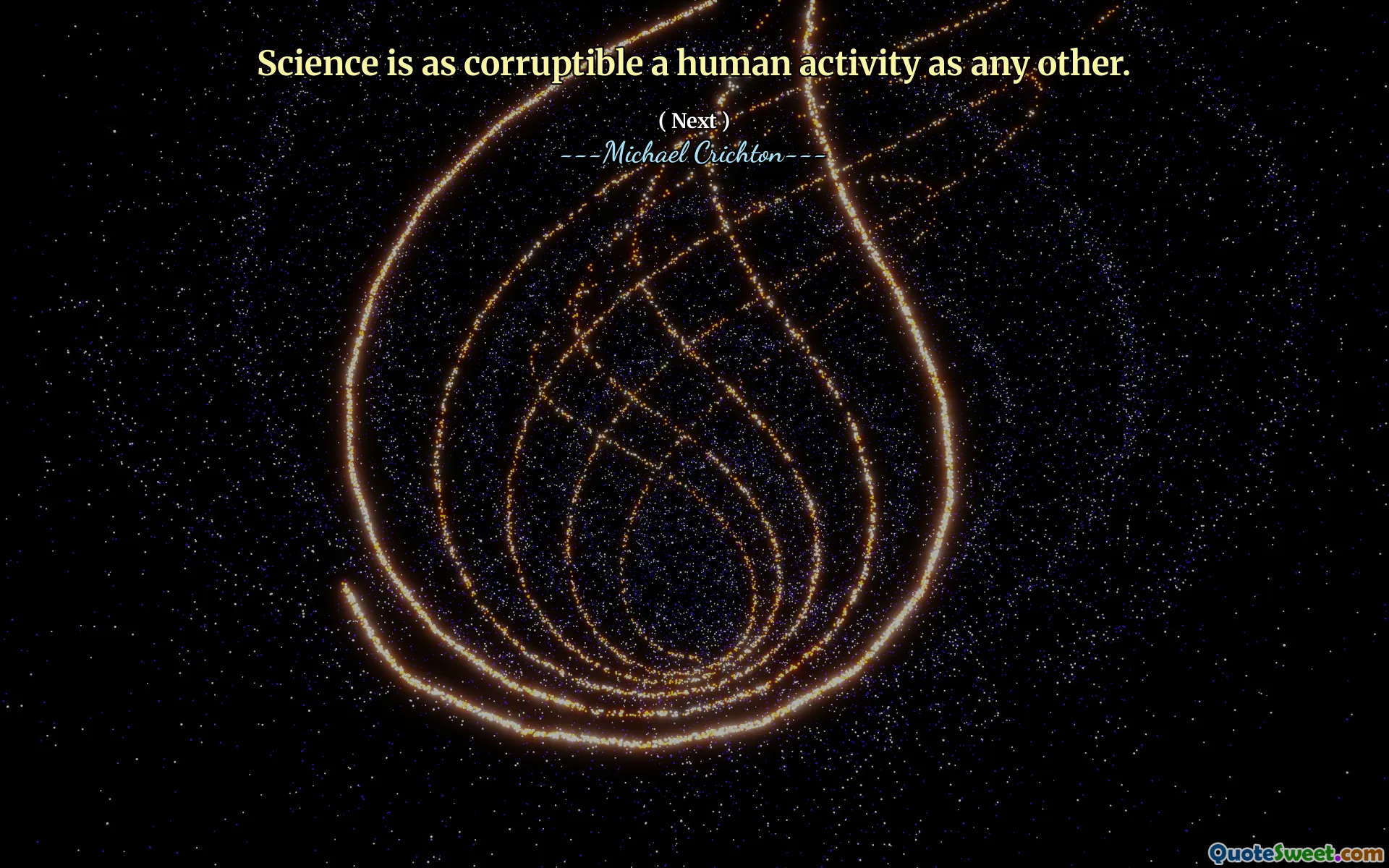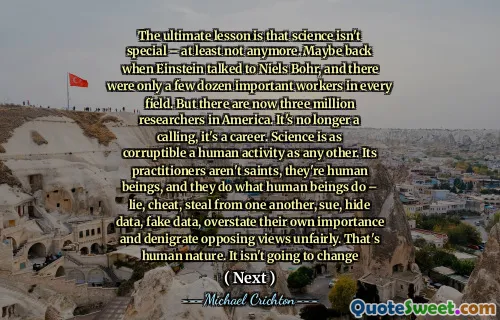
Science is as corruptible a human activity as any other.
In his book "Next," Michael Crichton explores the idea that science, while often seen as an objective pursuit, is just as prone to corruption as any other human endeavor. He suggests that the motivations and flaws of scientists can lead to biases and ethical dilemmas in their work, ultimately questioning the integrity of scientific findings and practices.
Crichton's assertion highlights the importance of skepticism and critical thinking in evaluating scientific claims. By recognizing that human factors can influence scientific research, we can approach scientific advancements with a more discerning eye and better understand the complexities of scientific inquiry.






